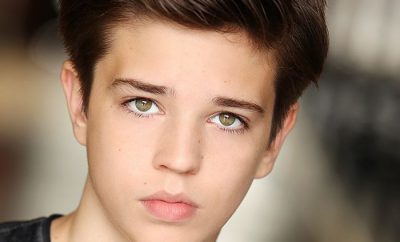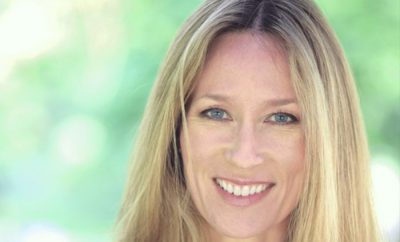Interviews
Michael Maes – Epiphany
By: Ruth Hill
At its heart, Epiphany is a story about conquering fear, being amongst sharks and reinventing life at every turn. Imagine all of this while navigating an Autistic family through life as a mother and a photographer. As this film will be featured at the Artemis Film Festival in Los Angeles, I had the privilege of asking the director of photography and producer, Michael Maes, a few questions concerning the film Epiphany in hopes that the audiences will understand the purpose and significance of what appears to be one amazing and earth-shattering film.
What inspired you to pursue a career in the film industry?
I more like rolled into it. After twenty years in software development, I got burned out and picked up scuba diving again to set my mind free. As I couldn’t remember all the beauty I witnessed underwater, I wanted to film it “for memory’s sake.” Thus, I started documenting my dives in a basic way, but wanted to learn more about the capturing itself and improving my knowledge on the subject. Doing that together with my wife, Ellen Cuylaerts, who is an underwater photographer herself, we constantly raised our bar to perfect our images until a certain moment where we realized we could use our images to spread awareness around the world about the current poor conditions of the environment. Via our images, we became the voices of the oceans and wildlife, making people love what they don’t know yet. Since that moment, I want to be that “ripple” which can start a “new ripple” in other people’s minds that can turn into new actions that yet again seed “new ripples…”
What inspired you to make the film Epiphany? What would you like the viewers to take away from the film?
It takes courage to look fear in the eyes and conquer it. Not only courage, but also knowledge and an open mind are crucial. Most of our fears are for things we don’t know, things we don’t understand. Opening your mind for those things is the first step towards conquering that fear.
Ellen Cuylaerts (the protagonist) was confronted with Autism in her family. She gained knowledge, kept an open mind and guided her family through life with a great outcome. At a later stage, she applied her conquering skills to her fear of water and sharks because she felt she had to. That resulted in her epiphany, a new mission in her life. As the viewer can relate to such a person, Epiphany was a story that had to be told in its raw, pure and honest way we made it.
Epiphany conveys hope. Being different in this society is sometimes hard. It starts in school. The easiest way to teach is when everybody thinks out of that same box, communicates in the same way…mainstream. It’s only when people dare to think and see outside the box that they can see and accept the beauty, wisdom, uniqueness and chances that people who are different offer.
How did you hear about the Artemis Film Festival?
I don’t remember exactly how I heard about the Artemis Film Festival, but I do remember what caught my eye about it: women being the spotlight of the festival. I applaud great initiatives taken by and for women, even should this exclude men by definition.
Did you face any challenges or great moments while filming?
Traveling with 8 to 12 cases, about 500 pounds of gear, is a logistical nightmare for small productions. Most of the destinations where we shot Epiphany don’t have large commercial aircrafts servicing them, which often resulted in delayed luggage without a way to source alternatives locally.
Also challenging was the nature of our work: nature. You can’t predict nature, nor can you command it. Bad weather days I default to 50% when planning such productions. At Tiger Beach we only had 2.5 days in the water of the anticipated six. That does put pressure on the crew to nail the shots. But we did manage beautifully!
The greatest moment would be when Ellen and I were alone in twenty feet deep water, surrounded by three huge tiger sharks. We were down there for almost two hours with the sharks and nothing else; us being totally accepted in their environment. I admired that “little girl” standing strong and tall next to those massive top-predators, weighing some 1,400 pounds each! Having done many shark dives, that moment was pure magic.
Why are you so passionate about strong women in films?
I am an advocate of strong women in general. Quite often, I find women prove to be more efficient than men. Men have a tendency to be more preoccupied with their own position, where women can more easily disconnect from their personal pride and make things happen for the greater cause. Women are too much in an underdog position in the film industry, especially around a camera, where there seems to be a factual male dominance. Not only do women have to “double prove” themselves against this male dominance, quite often I observe that women become their own worst obstacle by tackling “one of their own” instead of creating a united front against that male stronghold. Sometimes women just shoot better where men just shout better.
Why did you choose the indie film industry? What are the benefits & challenges of indie films?
With the explosion of technical evolution, the huge platform of the internet and the ongoing dropping cost of ownership, being a filmmaker has become more of “a possibility” than a mere “childhood dream.” In this new media it is now more than ever not about the camera anymore, but about the persons behind it and the story. This gives low-to-no-budget productions a chance to become a success. Although at the cradle of the commercial internet, I believe The Blair Witch Project makes a great example: grossing nearly $250M on an original $35K budget.
The downside of indie filmmaking is its low threshold resulting in a huge pool of filmmakers and films. So, it’s getting harder to be noticed, and chances are high someone else is working on the same idea you have at the other end of the world.
Any other upcoming works you can mention?
I am working on a feature documentary about climate change, seen through the eyes of polar bears. As this is all about nature in its harshest environment, the Arctic, it is a challenging project to get the shots. To put this in perspective, last year I spent more than three months in the Arctic, but got only two shots of polar bears. We will be heading to the Arctic again soon for more than a month exclusively to find and film polar bears with their cubs.
I cannot even tell you how thrilled I am to get to see this film very soon on Sunday, April 24, at the Artemis Film Festival. But even if you are unable to attend, be sure to check out the links below so that you can find out more about Epiphany and maybe get the opportunity to view this epic film yourself.




You must be logged in to post a comment Login